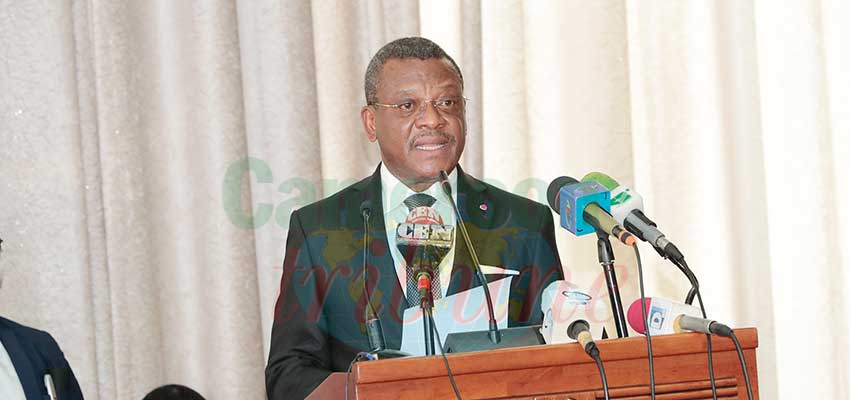
Following is the government’s economic, financial, social and cultural programme for the 2021 financial year presented at the National Assembly yesterday November 25, 2020.
The Right Honourable Speaker of the National Assembly,
Honourable Members of the Bureau of the National Assembly,
Honourable Members of Parliament,
Distinguished Guests,
Ladies and Gentlemen,
I am delighted to take the floor before the National Assembly to present the Economic, Financial, Social and Cultural Programme for the 2021 financial year prepared by Government, in compliance with the provisions of our Constitution.
This programme is hinged on national policies, as defined by the President of the Republic, His Excellency Paul BIYA.
Mr. Speaker, permit me to acknowledge the constant support of this Honourable House, towards Government action under my leadership, especially in these trying times.
As you are probably aware, our country is facing multiple and complex challenges.
The first challenge is SECURITY. For close to four (4) years now, our compatriots in the Far North, North West, and South West regions have been suffering as a result of the atrocities committed by terrorist groups.
Other Regions, such as the East and Adamawa, are confronted with cross-border criminality.
Regardless of whether they claim to be Boko Haram or pursuing an illusory secessionist agenda, we are more than determined to track them down wherever they may be.
I would like to spare a special thought for the victims of these armed groups and once again, commend the professionalism of our valiant Defence and Security Forces.
In the ten regions of our country, our Defence and Security Forces are toiling to restore peace and preserve the territorial integrity of Cameroon, under the Command of the Head of State, Commander in Chief of the Armed Forces.
We owe them an eternal debt of gratitude.
The second challenge is HEALTH. Like other countries, Cameroon is faced with the Corona virus pandemic. Since March, Government has been implementing a response and economic and social resilience strategy with a view to curbing the spread of this virus and mitigating its effects in our country.
I am pleased with the actions taken by the different authorities involved in slowing down the spread of the disease and saving lives.
I would like to seize this opportunity to pay tribute to the remarkable work that the medical and health personnel, and many volunteers, are doing every day to curb this pandemic, even at the risk of their lives.
Moreover, support measures as prescribed the President of the Republic made it possible to assist the most fragile households and most distressed sectors of activity.
It is obvious that the efforts undertaken so far must be maintained, considering the persistence of this health crisis and its effects on our economic and social fabric.
This is why the third challenge our country is facing is ECONOMIC RECOVERY.
The COVID-19 pandemic has weakened our public finances, already strained by the economic and financial situation faced by States of the Central Africa Sub Region.
Mindful of the situation, we have defined and are implementing a strategy for economic recovery to mitigate the effects of the health crisis.
The Right Honourable Speaker of the National Assembly,
Honourable Members of Parliament,
I will begin the presentation of this Programme with an overview of what Government has achieved in 2020 that is ending. This will be followed by the prospects of Government action in 2021.
In 2020, Government’s activities focused on consolidating the achievements of previous years and addressing new challenges.
After growing by 2.9% in 2019, the world economy, faced with the COVID 19 crisis, is expected to experience its sharpest decline estimated at -4.4% in 2020, since the Great Depression of 1929.
However, this recession would be less severe than the one projected in June 2020, that is, -4.9%, due to the de-confinement that has begun in many countries.
At the national level, the budget balance deteriorated slightly due to the effects of COVID-19. It stood at -2.3%, against an initial target of 1.1%.
In this context, the execution of the Finance Law of the 2020 financial year was put to the test, in particular, due to the socio-economic and financial effects of the health crisis.
This led Government to resort to a supplementary budget.
This is the substance of the Ordinance of 3 June 2020, to amend and supplement certain provisions of the Law of 24 December 2019 on the Finance Law of the Republic of Cameroon for the 2020 financial year.
A Special National Solidarity Fund for the fight against the coronavirus and its economic and social effects was created and replenished to the tune of 180 billion CFAF.
In terms of the mobilization of non-oil revenues, despite the economic situation, we were able to record, as at 30 September 2020, overall internal resources of about 1 941 billion 900 million CFAF, that is, an estimated 78% recovery rate.
Regarding resources, oil revenues amounted to 73 billion 800 million CFAF, while non-oil revenues, especially taxes and customs, amounted to about 1 868 billion 100 million CFAF.
In this regard, tax authorities continued to simplify certain procedures, in particular through:
the use of telepayment of taxes and duties for large and medium-sized enterprises; the abolition of the proportional registration tax on public orders placed by public companies; the effective implementation of the “FUSION” computer system, a platform for pooling tax and customs data.Furthermore, Government has commissioned a new customs information system called Cameroon Customs Information System, which aims to consolidate the electronic processing of customs operations, in a totally virtual environment, owing to social distancing imposed by COVID-19.
Also, we have intensified the fight against illegal trade throughout the country as part of Operation “Stop Illegal Trade”. This has led to the seizure of various goods for an estimated value of 10 billion CFAF.
Regarding the management of the Public Treasury and the financial sector, the activities carried out include:
the cleaning up of the financial sector through the restructuring of certain national banks; the raising of 614 billion CFAF on the money market, to cover the State’s cash flow needs and to finance development projects; the payment of all compulsory State expenditure relating to debt servicing, for an amount of 1 776 billion CFAF, as well as 326 billion CFAF for the clearance of State arrears. the realisation of 40 billion CFAF in budget savings, thanks to the dematerialisation of cash vouchers and the implementation of the individualised payment process; the finalisation of the transposition of CEMAC directives, with the signing of the Decree on the General Regulation of Public Accounting on 7 July 2020.Within the framework of the strengthening of development partnership and regional integration, Government continued reviewing projects in need of funding from the various technical and financial development partners.
To date, 368 billion 720 million CFAF has been raised to finance projects included in the 2020 debt plan.
May I seize this opportunity to once again thank our bilateral and multilateral partners for their multifaceted contributions to the economic and social development of our country.
As part of strengthening the strategic planning process, the 2020-2030 National Development Strategy was elaborated as an extension of the Growth and Employment Strategy Paper.
With regard to Governance, particular emphasis was laid on improving the public contracts system and strengthening control mechanisms for their execution.
As concerns Territorial Administration, it is worth noting the signing of a Memorandum of Understanding to create the joint border commission between Cameroon and Congo.
In addition, preparations towards regional elections led to the update of the index of traditional chiefdoms, thus making it possible to identify:
80 1st class chiefdoms; 597 2nd class chiefdoms; and 12 thousand 686 3rd class chiefdoms.
In the area of civil protection, Government’s activities focused on:
continuing the implementation of the Emergency Humanitarian Assistance Plan for the North West and South West Regions; revising the National Contingency Plan; monitoring the management of refugees and migrants; providing Government assistance to victims of natural disasters.I would like to welcome the election of our compatriot, Ms. Mariatou YAP, to the prestigious position of Secretary General of the International Civil Defence Organisation. Her election is undoubtedly an acknowledgement of our country’s unwavering efforts in this domain.
With regard to security, in addition to recruiting new staff into the various defence and security corps, several facilities were constructed, rehabilitated or equipped for the military, gendarmerie and national security units.
In the same vein, Government continued to make operational and reinforce the capacities of the National Committee for the Disarmament, Demobilisation, and Reintegration of ex-combatants. Progress recorded here includes:
the reception in residential establishments of 157 ex-combatants in Meri, 175 in Bamenda and 132 in Buea, for a total of 464; the reintegration in 2020 of 68 residents from the Buea and Bamenda centres; the completion of the construction of the Bamenda DDR Centre and the launch of the construction of the Buea Centre.
The implementation of the Decentralisation process has been one of Government’s focus areas in 2020.
The municipal elections organised on 9 February 2020 resulted in the renewal of the council map by 59.4%.
The recently installed municipal councils will give greater legitimacy to the Regional Councillors who will be commissioned after the 6 December 2020 elections.
Furthermore, this election was a response to certain issues raised during the Major National Dialogue. These include, among others, the appointment of Government Delegates and the creation of a Special Status for the North West and South West Regions.
At the institutional level, the National School of Local Administration was established and its social organs are already fully functional.
This institution is in charge of training staff of the local civil service whose specificities are being determined.
As for normative production, out of the 32 enabling instruments envisaged, 26 have been drafted. Six instruments have already been signed and 20 are being validated.
With regard to local development, 36 billion CFAF was set aside under the General Decentralisation Grant for Investment with each council receiving 100 million CFAF for the funding of 1 776 council projects.
With regard to Justice, Government is continuing the methodical implementation of its construction and renovation projects of court and penitentiary facilities.
Cet article complet est réservé aux abonnés
Déjà abonné ? Identifiez-vous >
Accédez en illimité à Cameroon Tribune Digital à partir de 26250 FCFA
Je M'abonne1 minute suffit pour vous abonner à Cameroon Tribune Digital !
- Votre numéro spécial cameroon-tribune en version numérique
- Des encarts
- Des appels d'offres exclusives
- D'avant-première (accès 24h avant la publication)
- Des éditions consultables sur tous supports (smartphone, tablettes, PC)






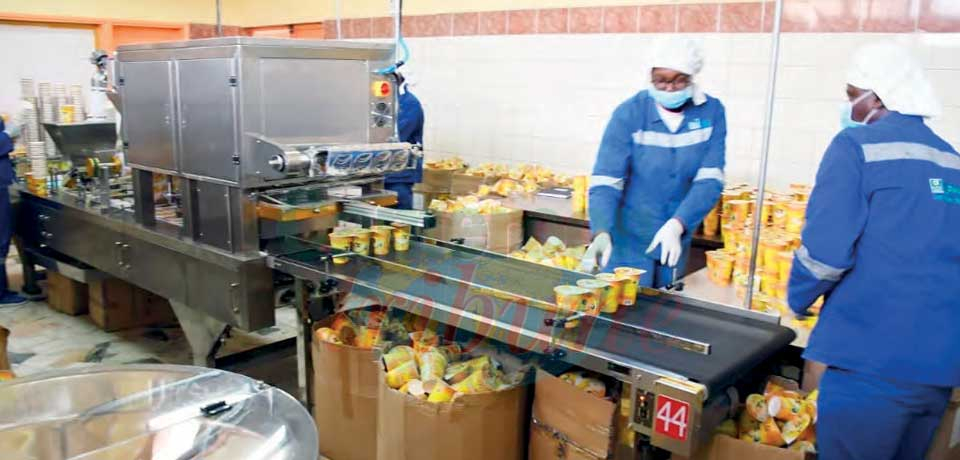
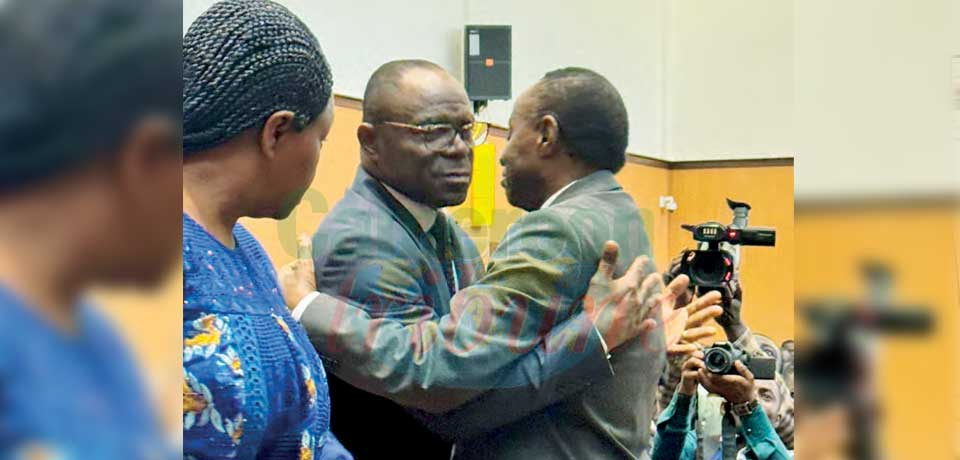
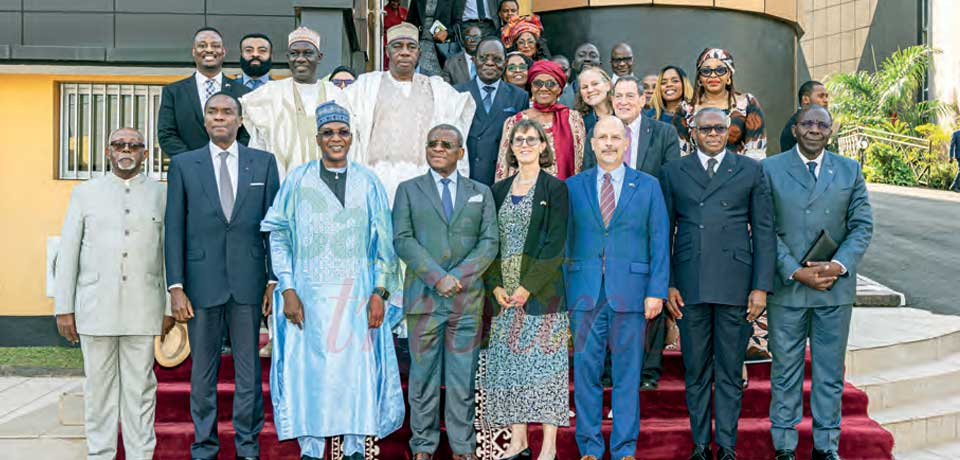
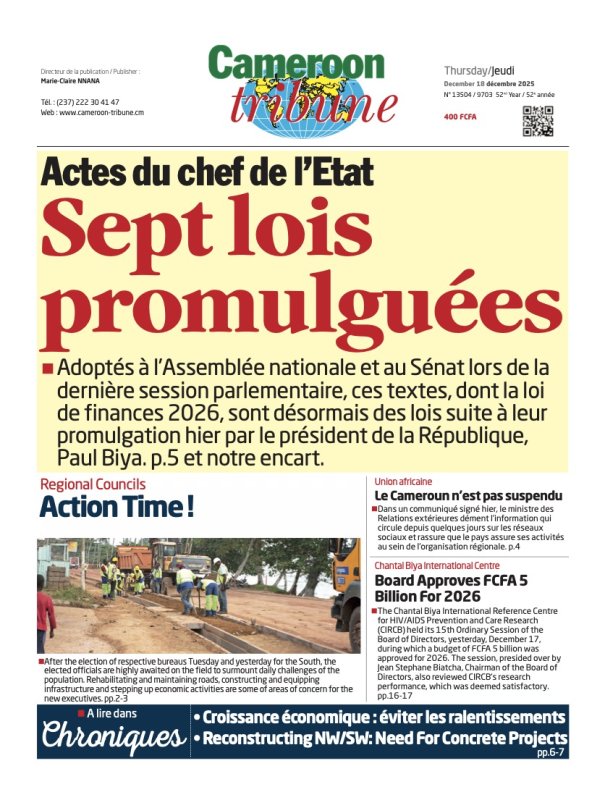




Commentaires